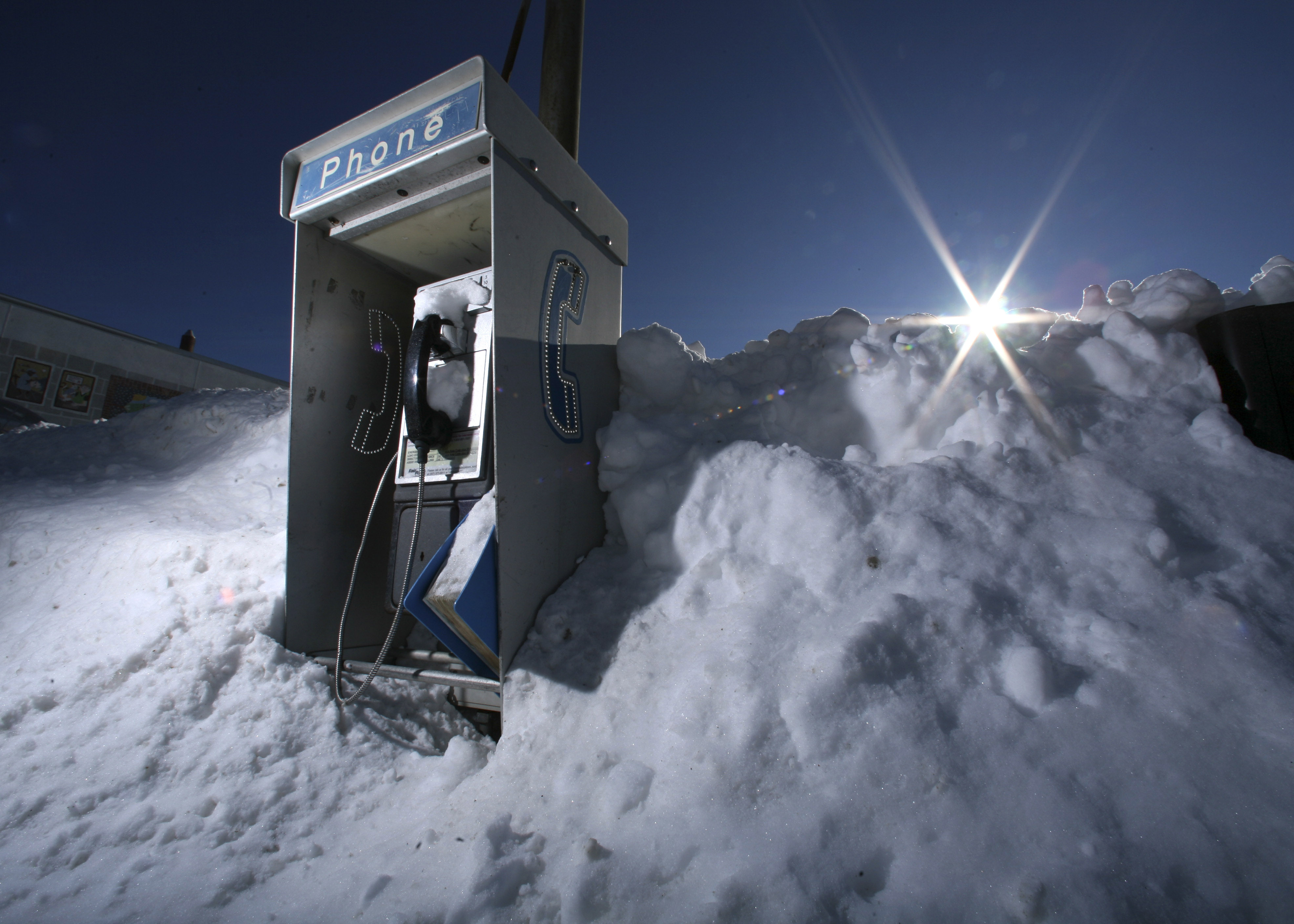Concordia College professor W. Scott Olsen pens a terrific essay — a requiem, he says — to a just-about-gone icon of American life and, occasionally, the privacy it provided.
This.

In many ways, the disappearance of the payphone symbolizes our society, we’ve given up privacy and, sometimes, anonymity for convenience.
They were public and they were anonymous. Everyone could see you talking, listening, laughing, crying. But there was no contact list. No call history either. You could be talking to your lover.
You could be talking to immigrations in Zanzibar or Kiev. Sometimes you needed an operator, the genie in the bottle, to find a number or make the connection. There was no way to know, so there was no limit to wondering.
Entire generations have now grown up without knowing the way we ripped off the telephone company (there was only one back then) and avoid long distance charges when checking in with family.
When I was 16 and riding a commuter train every day into Chicago and then back home to a suburb in the evening, I learned there was a trick to the station’s pay phone.
I would dial home, and when my mother answered I would recite the pay phone number as fast as I could and then hang up. There was a space of two or three seconds before the connection was recognized. The phone would return my dime and my mother would return the call.
Pay phones accepted incoming calls back then. It’s not that we needed the dime. It was the simple fun of a trick to the machine.
There are only about 300,000 left in the country, and the chances are pretty good that only a fraction of them actually work.
In St. Paul, my colleague, Julia Schrenkler, and I searched a few months ago and found only the one near the Victory Ramp in the downtown skyway. We don’t know if it works; we were afraid to touch it.
Check for a left-behind coin in the coin-return slot? Not a chance!
The phones in our pockets, filled with apps and music and games and the names of people we know, are certainly more exact. They can be tracked by tower and by satellite. They have history, and they can be used as evidence against us. When they are broken, in one sense we are alone.
It’s still at least comfortable to know that The Payphone Project is still going, an effort I documented when NewsCut began in 2007. Mark Thomas encouraged people to call payphones and establish a human connection with whomever answered.
It’s almost impossible to do that now; payphones don’t accept incoming calls anymore.
Nowadays, he documents the payphone’s demise and the occasional lonely holdout.
